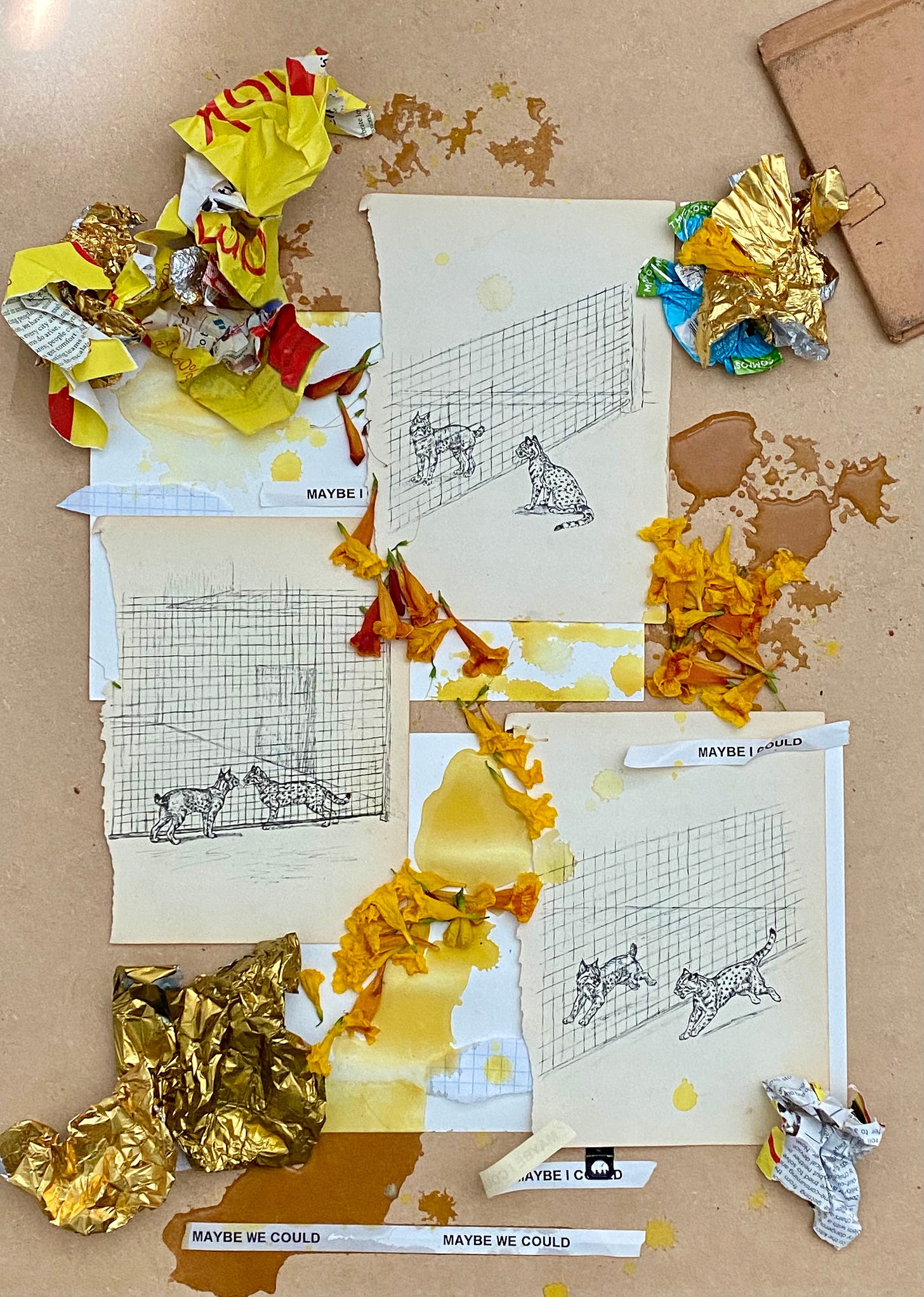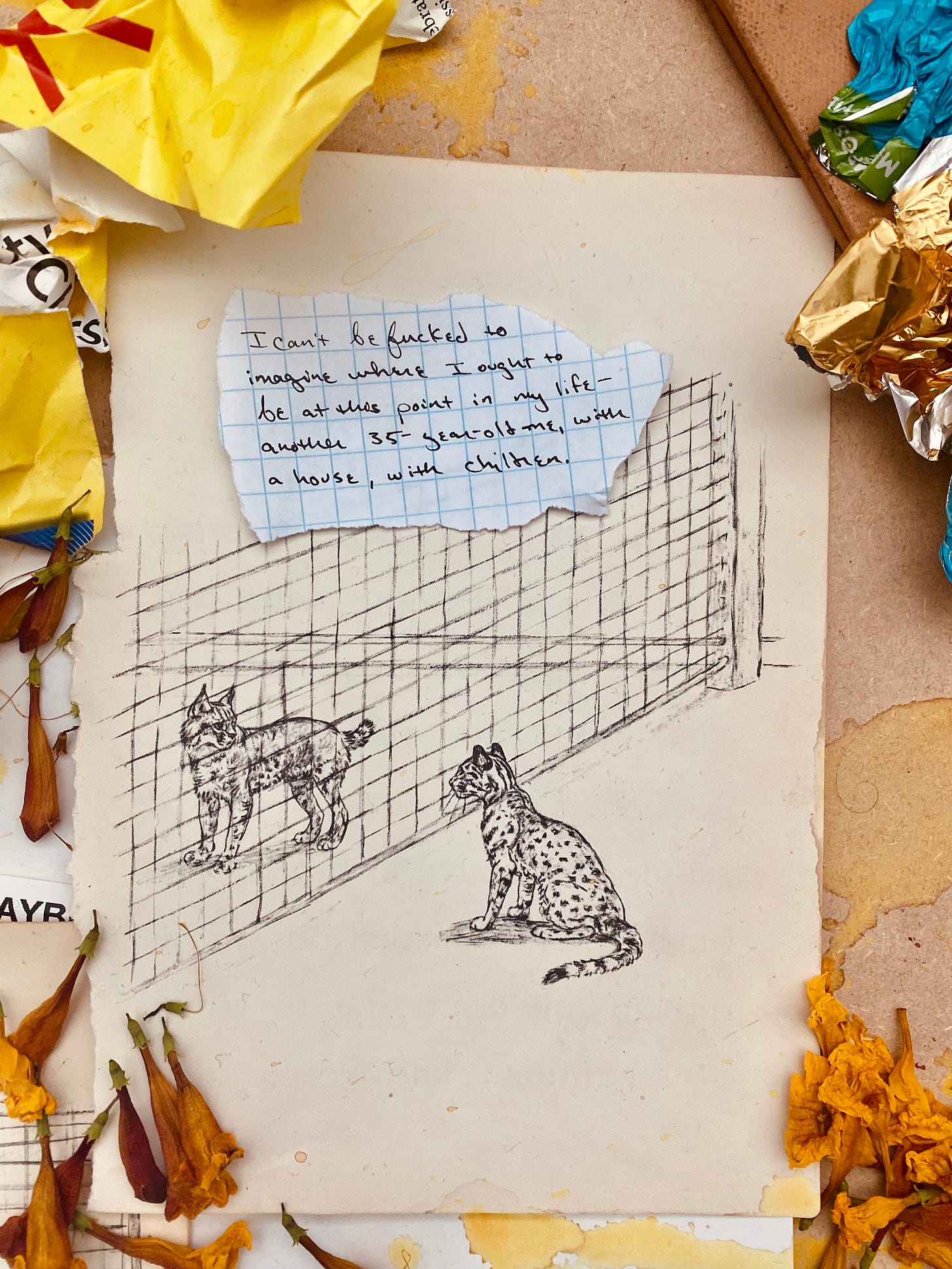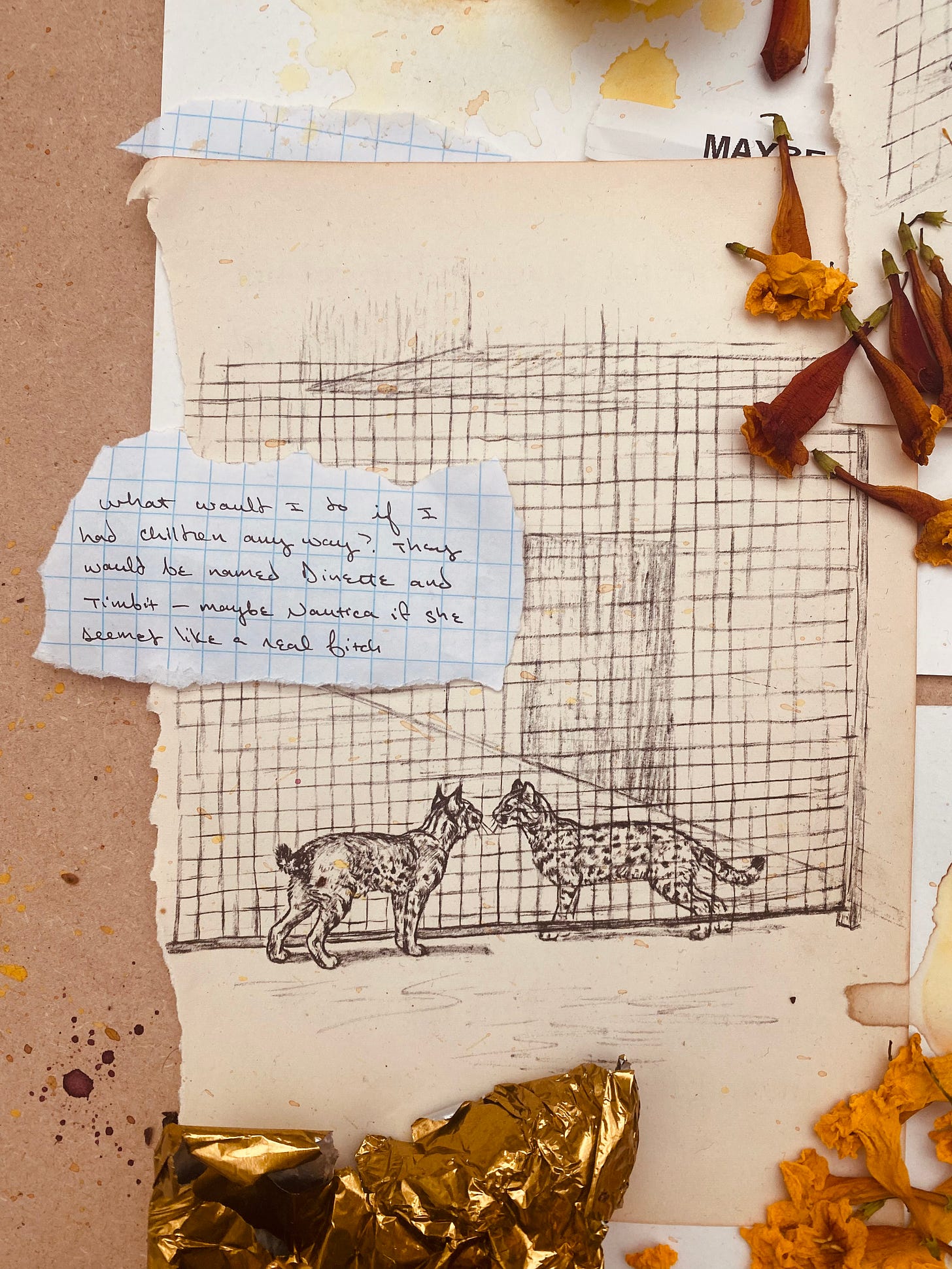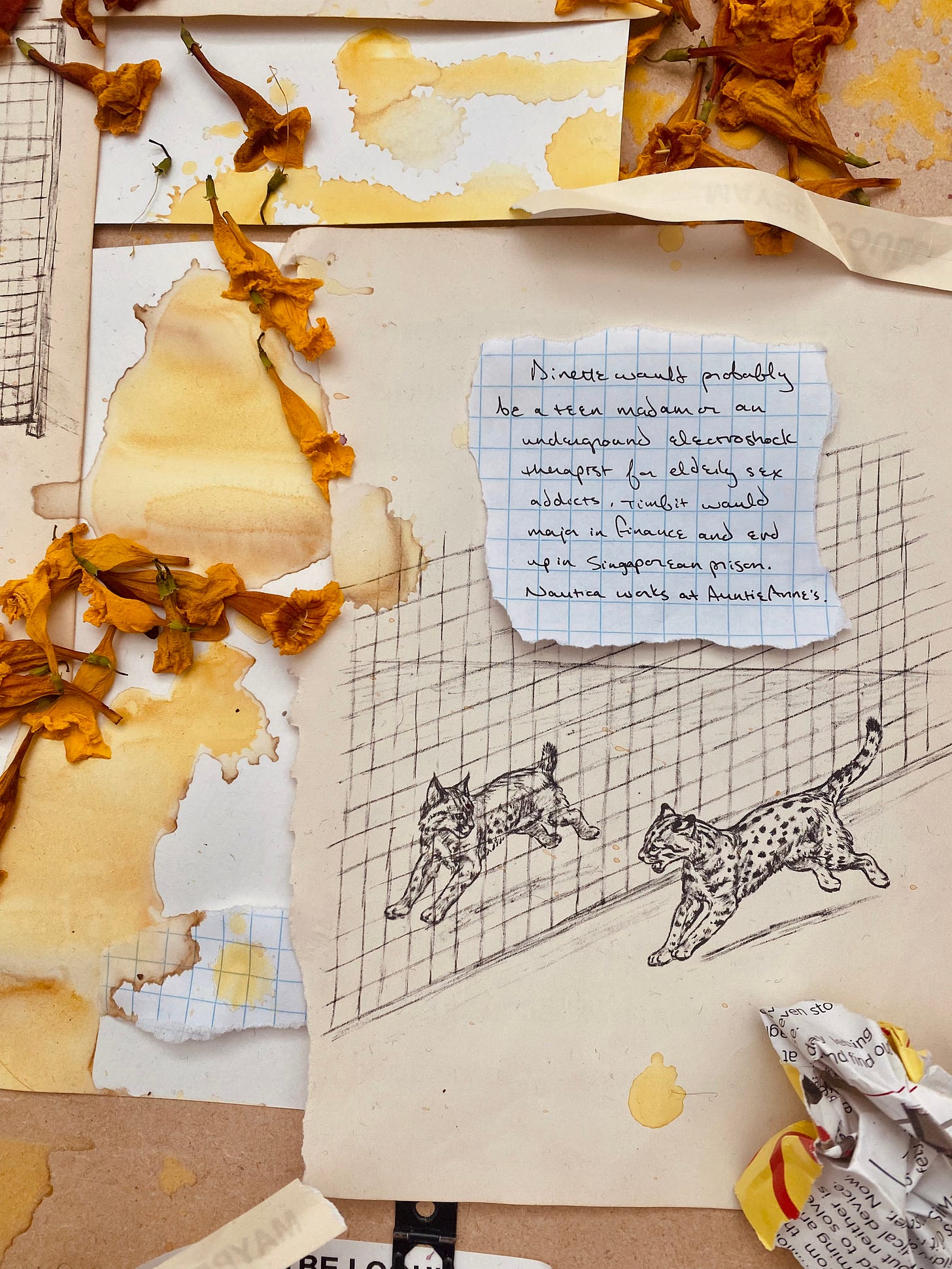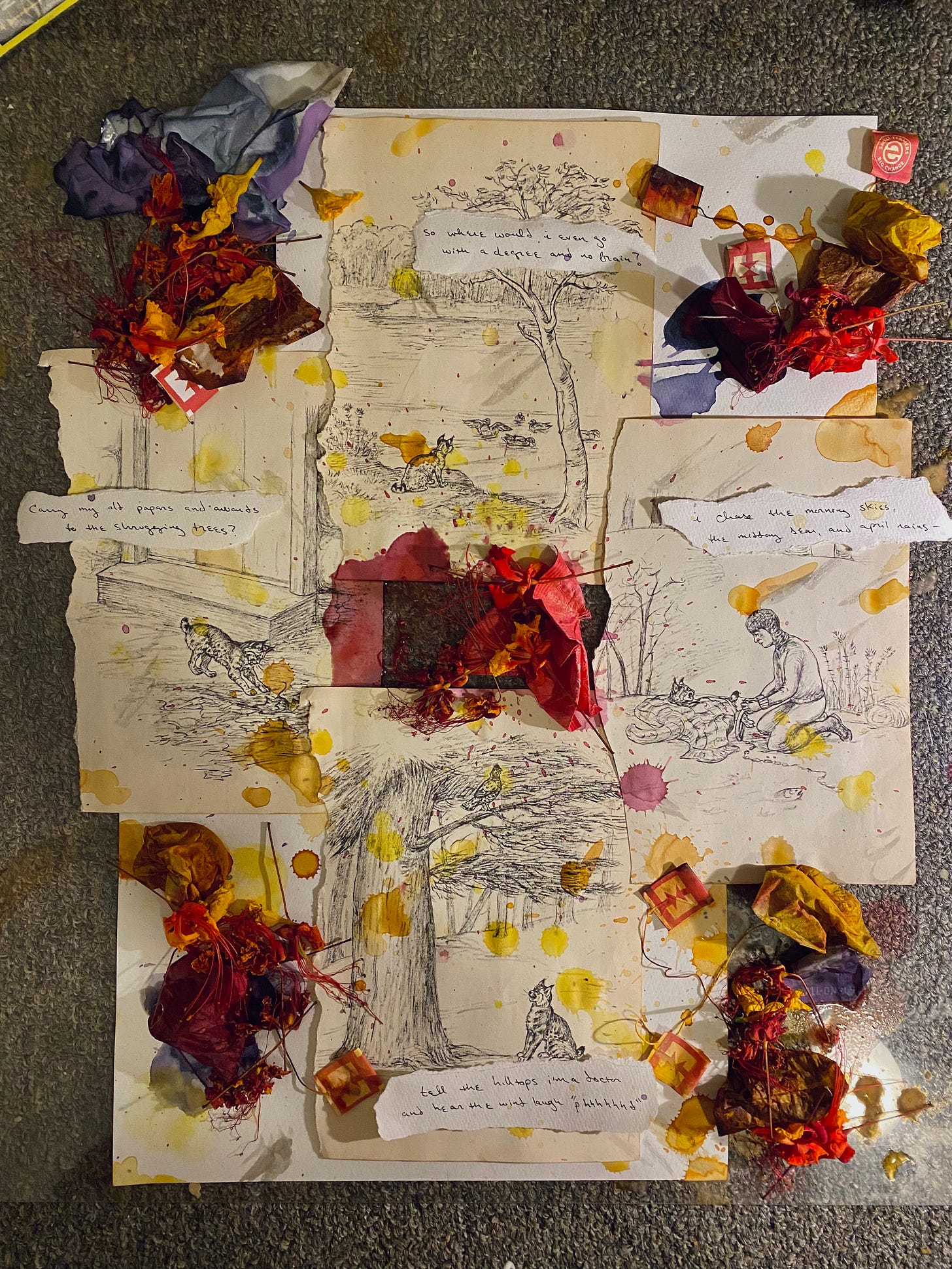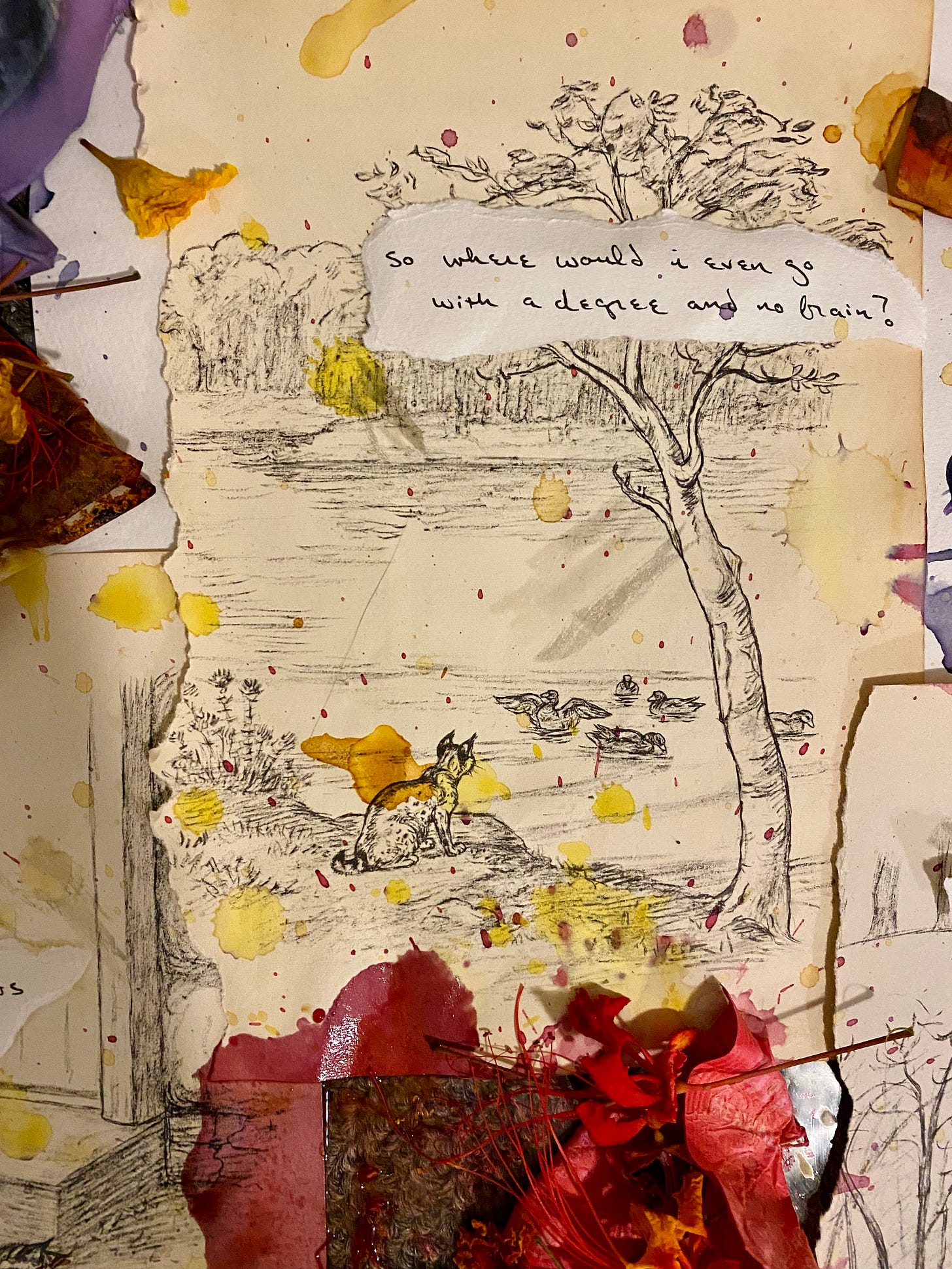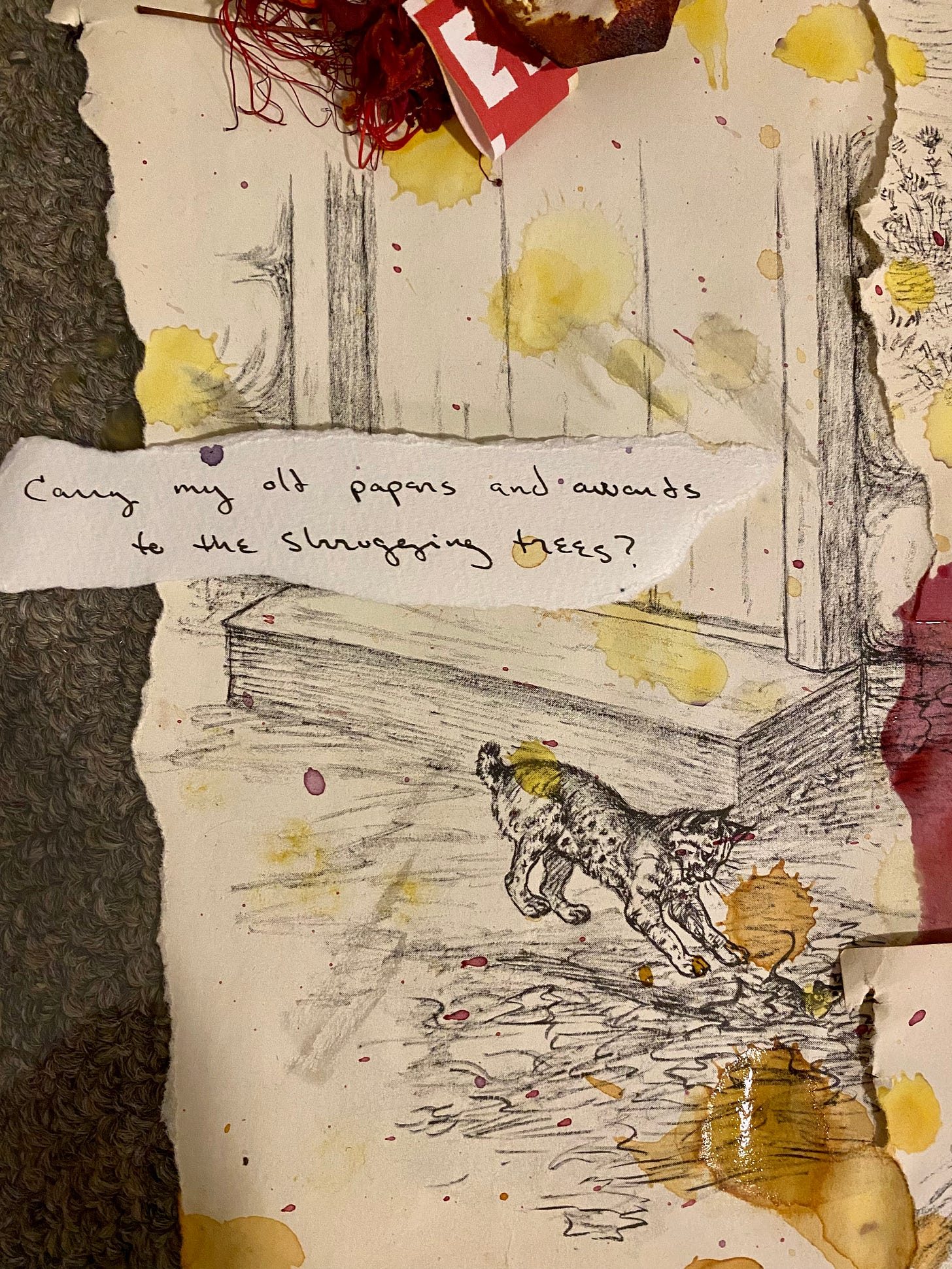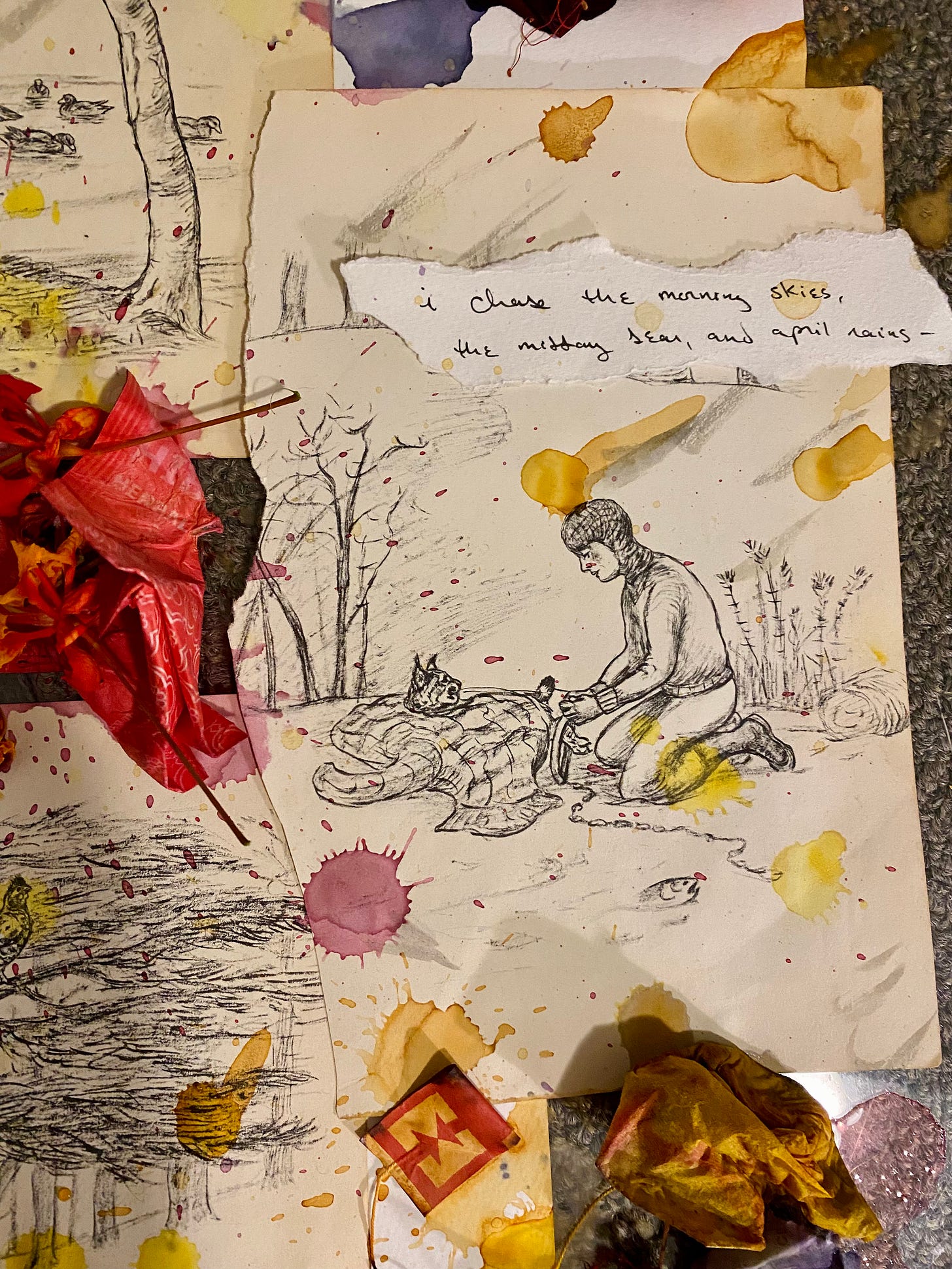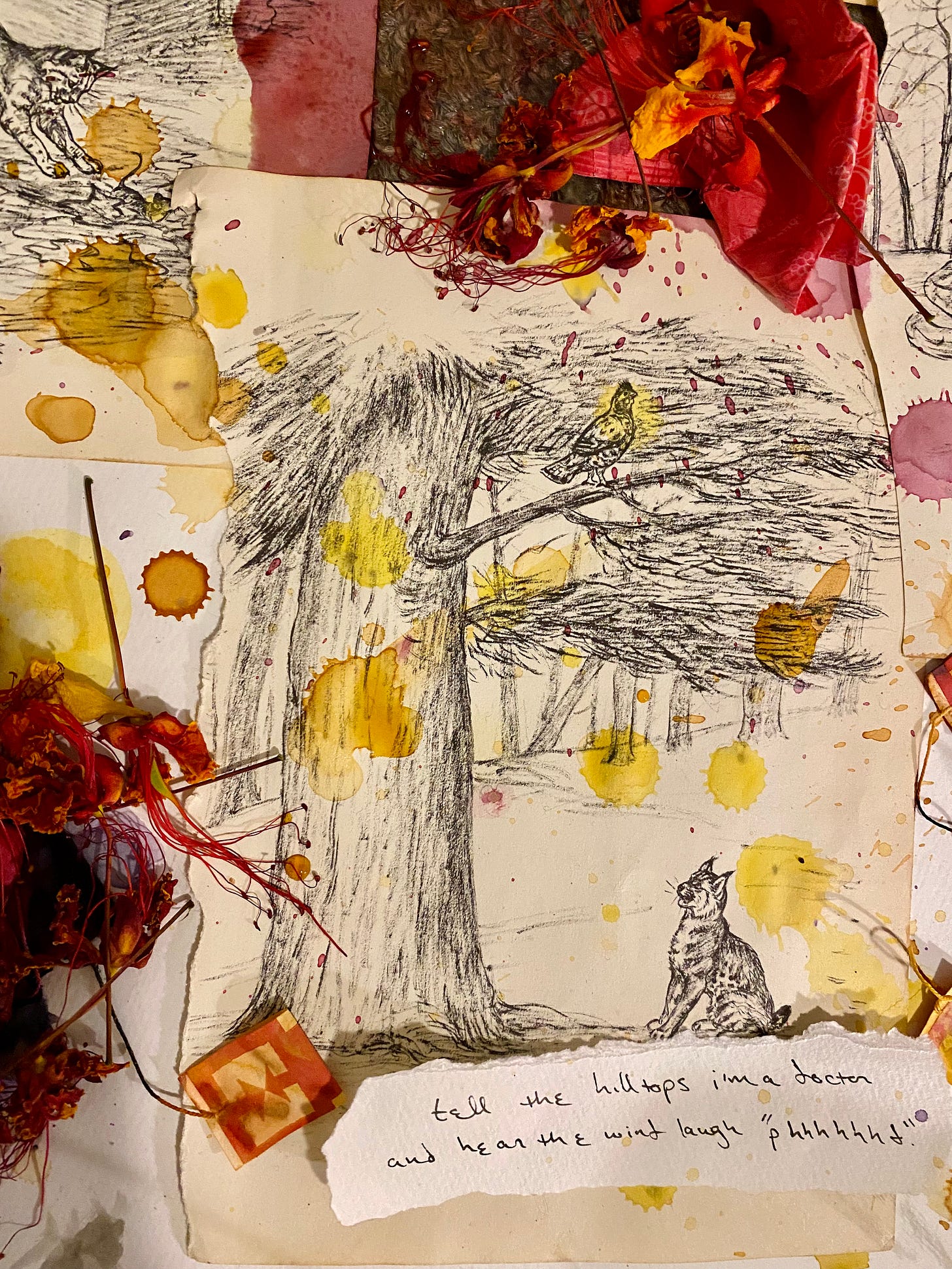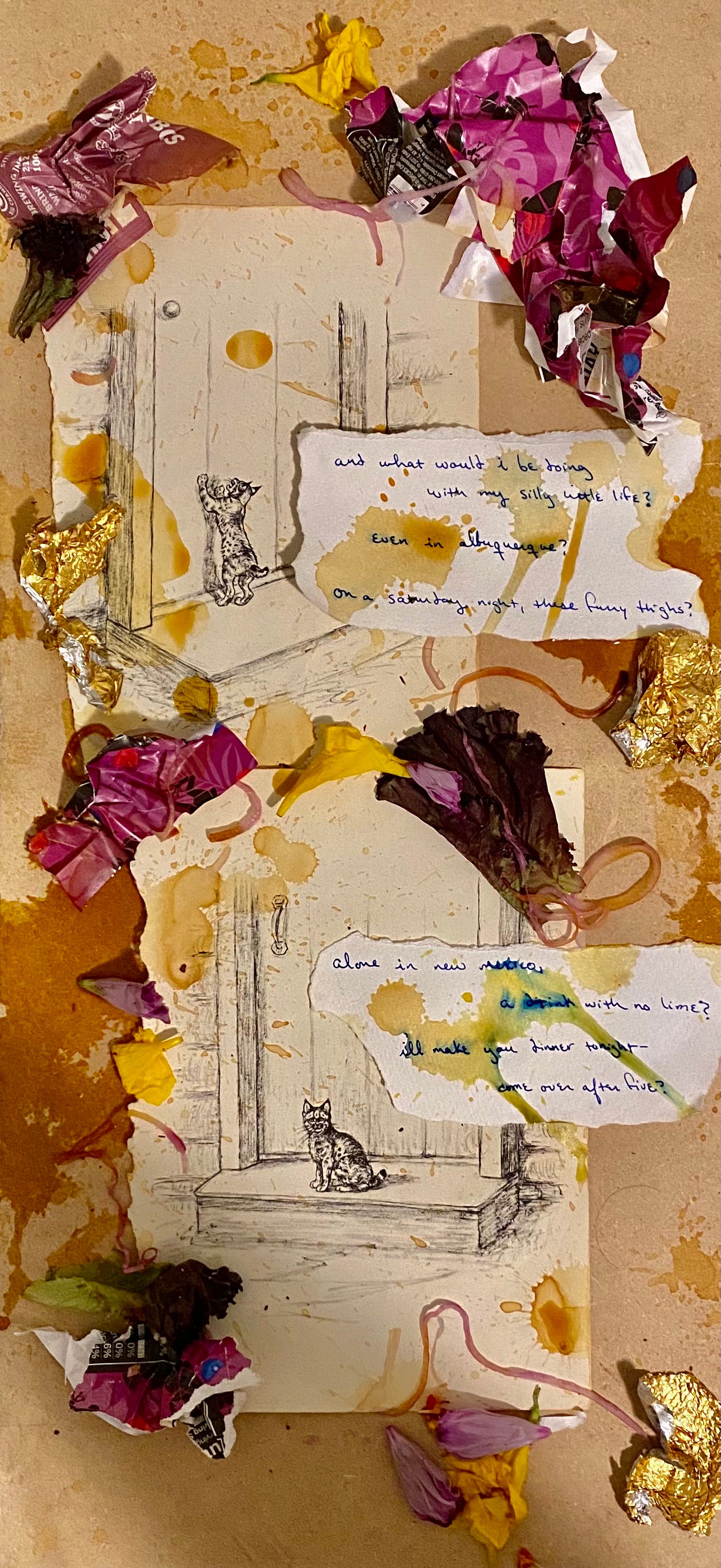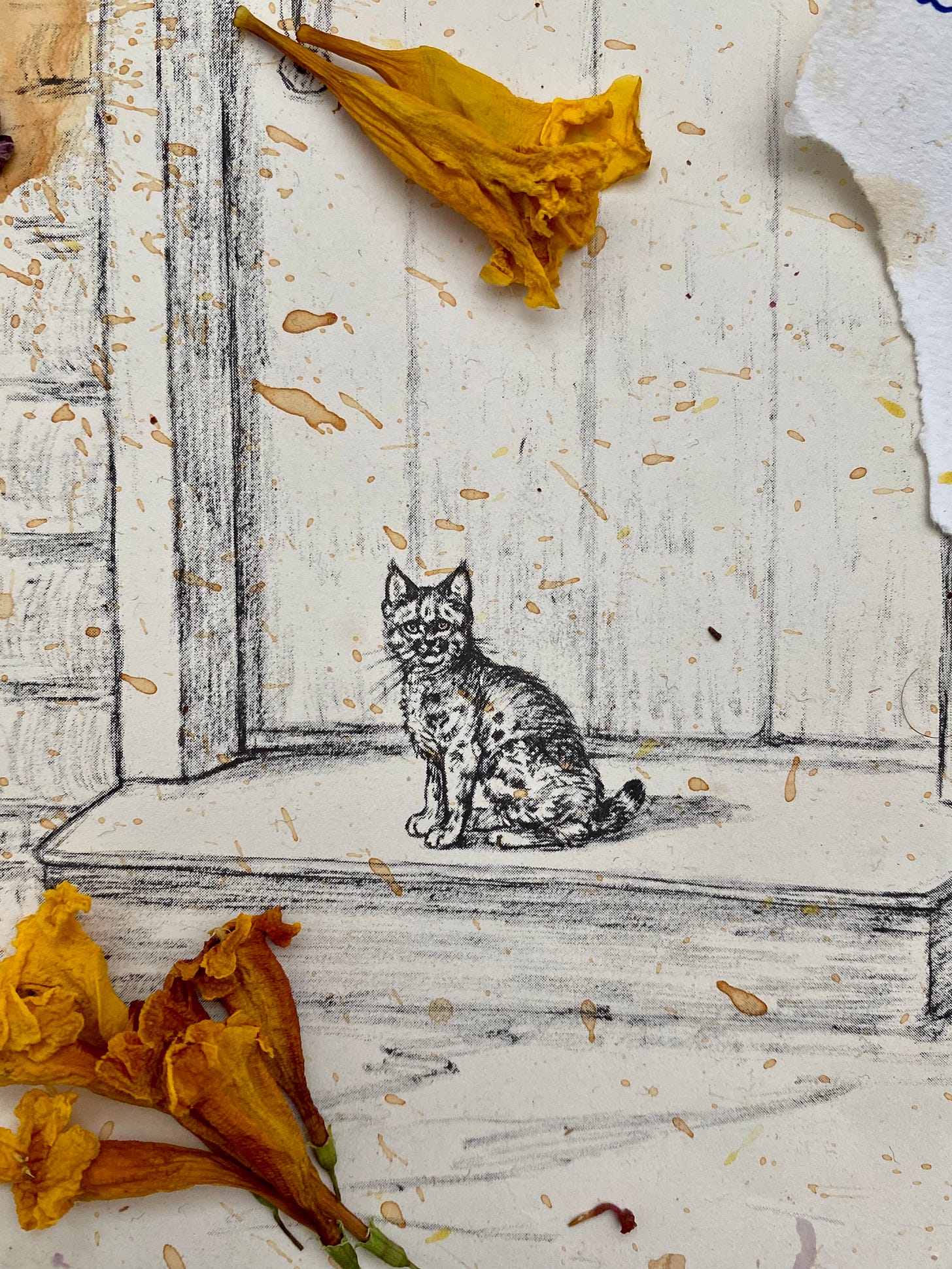message 19: another season
Hey there,
This one is about aging, kind of. I was the youngest person in the room for so long, and it was more of a relief than a shock when that was no longer the case. I suppose I’m a cat who has worked through a few lives already, with enough scars that some don’t even have a story. At the very least, I am a Leo. I spent my twenties in academia—research awards, appropriately clashing patterns, teaching portfolios, the whole nine—and it all sort of came to an end when I was thirty. The afternoon I defended my dissertation, I sat in my car and sang Celine Dion at full volume for twenty minutes until I hyperventilated. One member of my committee was in an airplane because dates were never his strong suit. I was told I passed without revisions and spent the afternoon in a dissociative state, playing a computer game at a bar. And that was that.
In academia, you’re either prime beef or spoiled goods. All of this depends, of course, on getting a professorial job. The clocks actually starts the year before you defend your dissertation: land a job before you even have the degree or people will think something is fishy. This of course depends on where your phd is from, which often depends on where you went to college for undergrad. You can easily be twenty-nine and rotten meat, no longer fit for the butcher’s window, because of circumstances at sixteen. Where does my heart beat now? For starters, I’m glad we’re past the blister bright of Leo season, where everything and everyone can be much too much too much. For another, I’m glad I can write when I want about what I want, kind of. I’m still shaving my beard: it’s far too salt-and-pepper for me right now. I’m still singing myself into a dissociative state with songs on repeat (Leo). I’m meowing at your door for some scraps and a pet. I’m on my way to the airport, even if being on time was never my strong suit.
Hope you’re well, too. It’s a collage poem and a prose poem. I spent a lot of time on both and I think they turned out pretty good. Give to mutual aid for immediate hurricane relief in Lousiana. Talk to y’all again soon.
KJ
another season
TEXT
another season
i turned 35 last week. my mother wished me another 64 years—which seemed both a bit fantastic and a touch skimpy.
i can’t be fucked to imagine where i ought to be in this point in my life—another 35-year-old-me, with a house, with children.
what would i do if i had children anyway? they would be named dinette and timbit—maybe nautica if she seemed like a real bitch.
dinette would probably be a teen madam or an underground electroshock therapist for elderly sex addicts.
timbit would major in finance and end in a singaporean prison. natuica works at auntie anne’s.
so where would i even go with a degree and no brain? carry my old papers and awards to the shrugging trees?
i chase the morning skies, the midday sear, the april rains—tell the hilltops i’m a doctor and hear the wind laugh “ppphhhhhhhhhhhhhhd.”
and what would i be doing with my silly little life? even in albuquerque? on a Saturday night, these furry thighs?
alone in new mexico, a drink with no lime? i'll make you diner tonight—come over after five?
factlets
it’s official: there’s no way to reverse the aging process. some scientists came out with this news last week, while we were naked at the lake, sunglasses but no sunblock in the late day heat. looking at “a collection of 39 human and nonhuman primate datasets across seven genera,” the forty-odd researchers deduced “the invariant rate of ageing hypothesis” must hold water.
i look at you while you work through a book you’ve read before, the copper fur on your chest already dappled with midsummer sweat. we’re both squarely in our thirties now—not bad, but fairly old by nineteenth-century actuarial standards, as those researchers note. i’ve started a tome on act-up and aids politics, of many men who we’ve both now outlived. by seven pm, we are a jumble of crows feet and armpits and dick veins, pages on pages and pages.
the first time i wrote this poem, sometime last spring, i was too obsessed with how much the world had kept us inside from one another, missing boozily singing with other townie homos and lifting heavy things around other obsessive depressives. what i’ve since realized is that i didn’t miss much at all—or, perhaps, that i’m tired of thinking about what exactly i miss. perhaps I am a himbo after all. there’s not much to me: green eyes, ratty sneaks, mustache, crooked teeth. i had ripped out and replaced my shifter so we could actually drive through the hills and park at the lake. you had seen me beat a scar into my palm when my car wouldn’t turn off. i didn’t miss that version of me, and i’d only seen them when i had to work from an office, sometime last spring.
still. what remains is an obsession with the mechanics of an instance. even when we were double-masked we sat in ordinary time. the horror of the bible, after all, is that there is no other way to describe the life and times of jesus when he isn’t being born, dying, or coming back. every other sunday is ordinary time. every week, with more and more deaths and a senile presidential race and hundreds dying as texas froze and portland melted into the ground—everything that wasn’t jesus coming or going—was just ordinary time.
i look up from a passage on the importance of direct action and watch you wave at me from the water, twisting and kicking like a sea otter who no longer has to encounter human language.
a few months after we met, we spent the evening at a townie bar having an entire conversation about the creation of fact—the taxonomy of factlets, the beads we string for one another, daily necklaces of information. a fact is something we build together. it doesn’t mean a fact is in itself true. rather, we assemble a certain set of instances and decide, together and altogether, that what it makes up is a fact: “we drove to the nude beach and the june sun brought the red out in our beards.” “gorillas tend to only make it to their mid-thirties.” “aids activists forever changed public health but couldn’t end capitalism.” “the scar on my hand faded with some cream and time.”
the author says most people will not engage in direct action or activism of any sort, even when they aren’t living in ordinary time. i don my sunglasses and flip flops and make my way to the water, passing a couple speaking Ukrainian. the zebra mussels watched my shoes and shades as i waded into the lake.
i close my eyes and swim backwards until i can hear the waves shift under my hips, feel the water bead in my mustache and fur. i swim until i no longer understand english or ukrainian or scientific reports. i swim until i’m outside of ordinary time, just water the color between your eyes and mine. i swim until i see you reading on the rocks and wave hello, a copper instance, something we build together.
Thanks again y’all. Tell your friends. Or don’t. I am not your meemaw. —KJ





